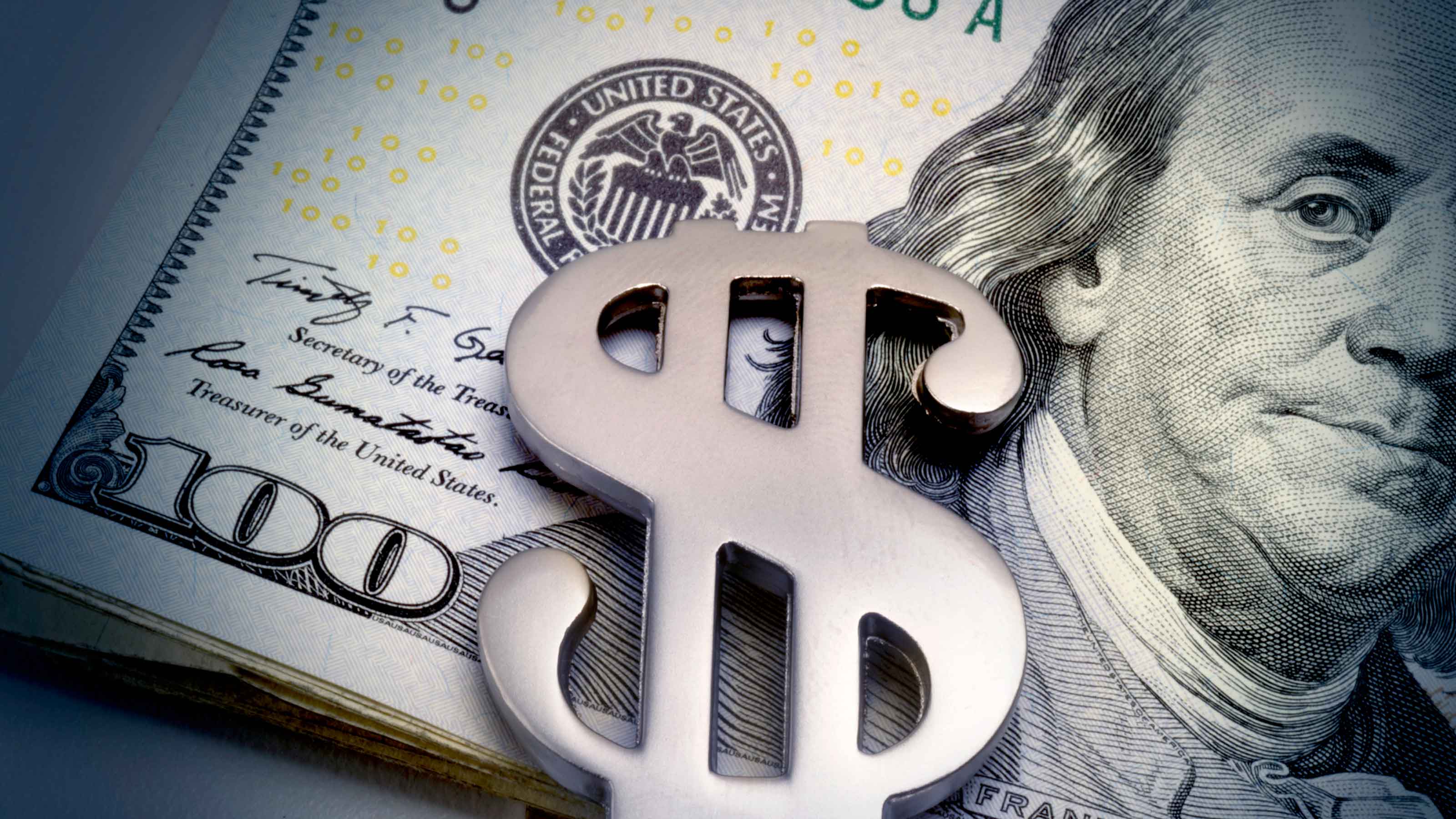A Fund That Buys Foreign Stocks That Everyone Hates
Oakmark International has been practicing its contrarian strategy with great success for more than 20 years.

Profit and prosper with the best of Kiplinger's advice on investing, taxes, retirement, personal finance and much more. Delivered daily. Enter your email in the box and click Sign Me Up.
You are now subscribed
Your newsletter sign-up was successful
Want to add more newsletters?

Delivered daily
Kiplinger Today
Profit and prosper with the best of Kiplinger's advice on investing, taxes, retirement, personal finance and much more delivered daily. Smart money moves start here.

Sent five days a week
Kiplinger A Step Ahead
Get practical help to make better financial decisions in your everyday life, from spending to savings on top deals.

Delivered daily
Kiplinger Closing Bell
Get today's biggest financial and investing headlines delivered to your inbox every day the U.S. stock market is open.

Sent twice a week
Kiplinger Adviser Intel
Financial pros across the country share best practices and fresh tactics to preserve and grow your wealth.

Delivered weekly
Kiplinger Tax Tips
Trim your federal and state tax bills with practical tax-planning and tax-cutting strategies.

Sent twice a week
Kiplinger Retirement Tips
Your twice-a-week guide to planning and enjoying a financially secure and richly rewarding retirement

Sent bimonthly.
Kiplinger Adviser Angle
Insights for advisers, wealth managers and other financial professionals.

Sent twice a week
Kiplinger Investing Weekly
Your twice-a-week roundup of promising stocks, funds, companies and industries you should consider, ones you should avoid, and why.

Sent weekly for six weeks
Kiplinger Invest for Retirement
Your step-by-step six-part series on how to invest for retirement, from devising a successful strategy to exactly which investments to choose.
It takes more than brains, in my view, to be a good investor. It takes guts, too. Call it discipline if you want to be less dramatic, but to beat the market you have to be willing to buy stocks that the crowd thinks are real stinkers and sell stocks that everyone loves.
Enter David Herro, the co-manager of Oakmark International (symbol OAKIX). His record speaks for itself. Since the fund's inception in 1992 through April 8, it returned an annualized 10.5% — an average of about 4.1 percentage points per year better than the MSCI EAFE index, a measure of developed-markets stocks outside the U.S. Oakmark ranks in the top 1% among foreign funds that invest in large companies. (All returns are through April 8.)
Herro's record is one of the very best in the mutual fund world. And he hasn't lost a step in recent years. Over the past three years, for instance, the fund returned an annualized 8.5% — an average of four percentage points better than the MSCI index. Herro is the real deal.
From just $107.88 $24.99 for Kiplinger Personal Finance
Become a smarter, better informed investor. Subscribe from just $107.88 $24.99, plus get up to 4 Special Issues

Sign up for Kiplinger’s Free Newsletters
Profit and prosper with the best of expert advice on investing, taxes, retirement, personal finance and more - straight to your e-mail.
Profit and prosper with the best of expert advice - straight to your e-mail.
Oakmark International isn't a low-risk fund. It has been slightly more volatile than the MSCI index. In the 2007–09 bear market, it plunged 58.9% — a half of a percentage point less than the index fell. In short, to profit from Herro's picks, you have to be patient.
Now take a look at few of the 56 stocks that Herro and Robert Taylor, who became co-manager at the end of 2008, currently own. They look nuts. Take Daiwa Securities, the big Japanese brokerage house, in a country where the main stock index is trading at less than one-third of where it stood at its peak in 1989. It's one of the fund's largest holding, at 2.9% of assets. How about Italy's second-largest bank, Intesa Sanpaolo (3.6% of assets)? Italy, of course, looks as if it could follow Cyprus down the road to financial disaster. Or, Banco Santander (SAN), the sprawling Spanish bank (2.3% of assets)? Spain's unemployment rate is over 25%.
Herro is happy — at least from an investment point of view — to see the fear over the future of the euro zone. "If there's no fear, you're not going to get a bargain, because then the company's good news is in the price," he says. "We're able to take advantage of macroeconomic fears to buy stocks at good prices."
Not that Herro's a Pollyanna about Europe. Although he thinks the euro zone is moving, albeit glacially, toward resolving its woes, he finds Western Europe's labor laws badly in need of reform. Either Europe will undertake "extreme structural reform," by which he means the continent will have to change labor practices and laws, as well as boost productivity, or the euro will weaken markedly over the long term.
What's wrong with European labor practices? "It takes two years to fire someone," Herro says. He points to a Ford plant in Belgium that's closing. The 300 salaried workers being laid off negotiated a $750 million severance package with Ford, or an average of $187,500 per worker. Those kinds of practices badly damage Europe's competiveness and just won't do in a global economy.
As for Japan, Herro thinks the economy really is recovering after 20 years of deflation. That's because of massive monetary stimulus and fiscal stimulus from the newly elected government. "I think we're in the third or fourth inning of a Japanese recovery," he says. "There's a lot more room to go."
Japanese stocks are at a five-year high after a 50% rise since November. Yet Herro says the majority of Japanese companies are still trading below book value (assets minus liabilities). "You just have to look for the good companies," he says. Favorites include Toyota Motor (TM), at 2.7% of assets; Honda Motor ADR (HMC), 2.6% of assets; and Canon (CAJ), 2.7%.
Emerging markets? Herro isn't interested and hasn't been for quite a while. The problem, he says, is that the quality companies are all too expensive..
Take Coca-Cola Femsa (KOF), the Coke bottler in Mexico. Says Herro: "Great, great business. The stock is up fourfold in five years, and it trades at 28 times what analysts estimate it will earn in the coming 12 months." That's too rich for Herro's blood. The alternative, he says, is to buy "junky" emerging-markets commodity companies. Their stocks are cheap, Herro says, "but they're plagued with problems."
But wait. When emerging markets are flat on their back and no one wants to buy them, Herro will be poking among the wreckage for quality companies at bargain-basement prices. That's the way he's always done it. It has worked out pretty well for Oakmark shareholders.
Steven T. Goldberg is an investment adviser in the Washington, D.C. area.
Profit and prosper with the best of Kiplinger's advice on investing, taxes, retirement, personal finance and much more. Delivered daily. Enter your email in the box and click Sign Me Up.

-
 Dow Adds 1,206 Points to Top 50,000: Stock Market Today
Dow Adds 1,206 Points to Top 50,000: Stock Market TodayThe S&P 500 and Nasdaq also had strong finishes to a volatile week, with beaten-down tech stocks outperforming.
-
 Ask the Tax Editor: Federal Income Tax Deductions
Ask the Tax Editor: Federal Income Tax DeductionsAsk the Editor In this week's Ask the Editor Q&A, Joy Taylor answers questions on federal income tax deductions
-
 States With No-Fault Car Insurance Laws (and How No-Fault Car Insurance Works)
States With No-Fault Car Insurance Laws (and How No-Fault Car Insurance Works)A breakdown of the confusing rules around no-fault car insurance in every state where it exists.
-
 White House Probes Tracking Tech That Monitors Workers’ Productivity: Kiplinger Economic Forecasts
White House Probes Tracking Tech That Monitors Workers’ Productivity: Kiplinger Economic ForecastsEconomic Forecasts White House probes tracking tech that monitors workers’ productivity: Kiplinger Economic Forecasts
-
 Investing in Emerging Markets Still Holds Promise
Investing in Emerging Markets Still Holds PromiseEmerging markets have been hit hard in recent years, but investors should consider their long runway for potential growth.
-
 Stocks: Winners and Losers from the Strong Dollar
Stocks: Winners and Losers from the Strong DollarForeign Stocks & Emerging Markets The greenback’s rise may hurt companies with a global footprint, but benefit those that depend on imports.
-
 5 Exciting Emerging Markets Funds to Buy
5 Exciting Emerging Markets Funds to BuyForeign Stocks & Emerging Markets Emerging markets funds haven't been immune to global inflationary pressures. But now might be the time to strike on these high-risk, high-reward products.
-
 African Stocks: Investing in the Last Great Emerging Market
African Stocks: Investing in the Last Great Emerging MarketForeign Stocks & Emerging Markets A massive middle class and rapid technology-enabled development could turn African stocks into growth darlings over the next two decades.
-
 ESG Gives Russia the Cold Shoulder, Too
ESG Gives Russia the Cold Shoulder, TooESG MSCI jumped on the Russia dogpile this week, reducing the country's ESG government rating to the lowest possible level.
-
 India Is on a Tear
India Is on a TearForeign Stocks & Emerging Markets Massive modernization presents opportunities for investors.
-
 Wasatch Emerging Markets Small Cap Goes Its Own Way
Wasatch Emerging Markets Small Cap Goes Its Own WayForeign Stocks & Emerging Markets This emerging-markets stock fund isn't afraid to stray from the pack.